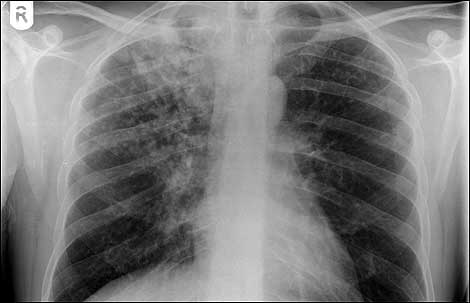 Because I Said So Parenting Advice January 21, 2011
Because I Said So Parenting Advice January 21, 2011
A wrap-up of winter health-care tips for families:
Despite what Grandma might say in this rough winter, cold temperatures are not the cause of colds or flu. The culprit is the viruses that cause colds and flu, which tend to be more common during the winter, when kids are in school and in close contact with each other, according to the American Academy of Pediatrics.
To boost your child’s immune system, add a rainbow of colors to your family’s diet. top choices are deep-color fruits and vegetables, such as blue blueberries, red tomatoes and orange sweet potatoes, according to the William Sears family of pediatricians. see Askdrsears.com.
Flu cases in the United States are typically highest in January and February. a sneeze or cough, not cold air, can transfer a virus. Frequent handwashing and teaching your child to sneeze or cough into the bend of her elbow — not into her hands — helps reduce the spread of germs and cut down on sickness.
Also, for safety in cold weather, infants and children need to be dressed in layers. but what’s overdoing it when bundling up? The rule of thumb for older babies and young children is to dress them in one more layer of clothing than an adult would wear in the same weather, pediatricians suggest.
What if no matter the precautions you take, your little one catches a cold? Count on at least one or two this season. but the Food and Drug Administration doesn’t support the use of over-the-counter oral cough and cold medications for young children. Studies have shown that for children under age 6, the cold medications don’t work and may have side effects.
As an alternative to cold medications, applying a topical vapor rub containing menthol, camphor and eucalyptus oils is effective for treating children with nighttime cough and congestion and improves sleep for children with cold symptoms, Penn State College of Medicine researchers have found.
Remember: Antibiotics do no good as a cold-fighter. but if your child has a fever and is uncomfortable, provide single-ingredient acetaminophen or ibuprofen. Watch the dosage and time interval. Part of the problem with cold medications has been that parents give the wrong dosage or more than one medicine with overlapping ingredients, the FDA has found.
It’s not just coughing that keep kids and caregivers awake at night. as many as 75 percent of American children consume caffeine daily, which leads to sleep problems and concerns such as obesity from guzzling sodas, suggests research published recently in the Journal of Pediatrics.
Children between ages 8 and 12 drink the equivalent of about three cans of caffeinated soda, the researchers found. Children as young as age 5 are consuming the equivalent of a can of caffeinated soda daily, but should not have any. as kids consume more caffeine, sleep disruptions increase.
Stress may be keeping your child awake as well. Parents are underestimating how much stress their children experience and the impact their own stress has on their children, a survey by the American Psychological Association suggests. Children as young as 8 are reporting that they have physical and emotional health consequences often associated with stress. Children who are overweight are more likely to report they worry a lot compared to children of normal weight.
Betsy Flagler, a journalist based in Davidson, N.C., is a mother and teaches preschool. E-mail or call Parent to Parent at 704-236-9510.
Ads by Google